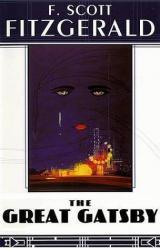
The Great Gatsby is likely the most commonly read book by students between middle and high school, an assigned reading that teaches students what some aspects of life were like in the 1920s and the over indulgent society that preceded the Great Depression. However, it is also a very simple book about an image obsessed man whose life in a summer is documented by a man who barely dares to call himself a friend. For all the hype surrounding The Great Gatsby, especially with a movie starring Leonardo DiCaprio, it is honestly a pretty underwhelming read. Never was I completely enraptured by the story or awestruck by any new information given by the author. It is a descent book with some interesting underlying meaning but overall I would say it is mediocre at best, certainly not a literary masterpiece to be held in prestige.
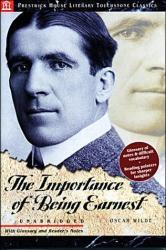
The Importance of Being Earnest, by Oscar Wilde, is a short play about characters who are indeed NOT earnest. Algernon, a bachelor living in London, has an imaginary friend called Bunbury whose false existence he uses to get himself out of unpleasant social gatherings. Similarly, Jack—who lives in the country with his ward, an orphan named Cecily—has a made up brother named Ernest, whose constant state of “illness” allows him to visit the city when he pleases. From these false identities arises a huge misunderstanding, when Algernon decides to visit Jack’s country home posing as Ernest, the imaginary invalid brother whom Jack had planned to kill off that very day in order to end his pretending once and for all. The two friends must sort out the misunderstanding with their respective fiancées, and end up making an ironic discovery in the process.
This play is highly amusing, with its opinionated characters and witty commentary. It has a satisfying denouement; from start to finish the plot is engaging, and it doesn’t drag on. I would recommend The Importance of Being Earnest to anyone who likes a clever and entertaining comedy, or just a good laugh!
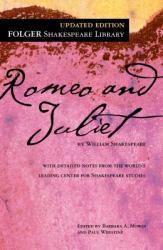
Many have probably heard of this book, one of Shakespeare's best dramas written. Everyone has probably heard about how it's of how two lovers who try to keep a relationship through their parents' everlasting feud, but there's much more to it. It's not only about love, but also about trust, death, and interconnecting relationships. It's about heartbreak and pain washed away with heartache and drama. But one thing is for sure, the two won't stop trying to be together until death takes them apart.
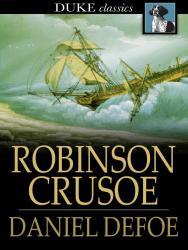
Robinson Crusoe is an incredibly fun novel to read. It is a fictional autobiography about the character Robinson Crusoe and his adventures while shipwrecked on an island. While the book does use some confusing language at times, the creative results it produces are greatly entertaining. The book starts slow, however, the pacing of the book almost depicts the exact development of Crusoe through his stagnant start and then a life of adventure later on. Around a third into the book, Robinson Crusoe simply states that he would focus on only the important parts of his adventure due to his lack of ink. It is at this point where the book starts to shine, and Robinson's island survival starts to mix supernaturalism and realism. The novel does not have any super deep themes and rather opts to just tell a straightforward story, unlike many modern island survival novels that attempt to be thought-provoking. Overall, the novel was a fantastic read. I would recommend this book to any person that enjoys adventure and survival.
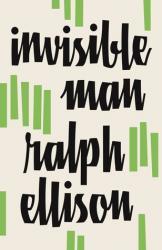
Ralph Ellison's Invisible Man is an essential American classic. Written in the late 1940s, it tells the story of a young African American man who moves north during the Harlem Renaissance and faces many trials as he attempts to find his place in society. This novel is a candid portrayal of life for Black Americans in the pre-Civil Rights era, exposing the hardships and prejudices that are often overlooked in retrospect but were all too real for Blacks during this time. It is honest, reflective, and blunt; often unsettling and disturbing. A central theme of Ellison's novel is the idea of blindness and how it affects identity. The protagonist is left confused and misguided as a result of the blindness of those he encounters, trying to fit into the expectations of others, until at last he realizes that he is, and has always been, "invisible" to society. With this revelation, the invisible man at last finds his own identity.
The novel recounts all of the events leading to the protagonist's discovery of his invisibility, beginning at his colored college in the south and taking the audience north to Harlem. The protagonist faces many different circumstances which reveal just how marginalized Blacks were in the United States in the 30s; each episode is a testament to the challenges faced by African Americans (even a reflection of the challenges faced by African Americans today) due to the blind discrimination of white people. Each incident faced by the invisible man is largely a reiteration of previous ones, merely taking place in different circumstances, which emphasizes his lack of identity--even his own blindness. Eventually, due to an unfortunate incident, the protagonist loses all sense of who he used to be, and this is what allows him to begin to make change--for better or worse. There are numerous violent and suggestive scenes in this novel, so I would recommend it to older, more mature teenagers.
Ellison takes his readers on a powerful, enlightening journey with Invisible Man. His compelling writing is intertwined with tragic humor and soulful undertones of blues and jazz, the backdrop for an incredibly raw and moving novel. The invisible man's story is very relevant to society today, and Ellison's messages should serve as reminders to us all. I believe every American would benefit from reading this novel at some point in their life; it illustrates such an important part of our nation's history, and that of African Americans. Ellison portrays the protagonist's emotions with such introspective depth, every conflict and thought explored in all its complexities. Invisible Man may not be a particularly fun read, but it is important and it is worthwhile.
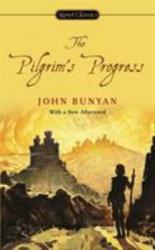
Really Good!
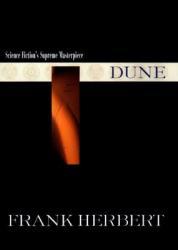
Frank Herbert’s Dune is one of the most iconic science fiction novels of all time. Featuring an imaginative universe filled with strange aliens and even stranger planets, Dune provides a sense of adventure and wonder to every reader. It follows the story of a young noble as the Emperor gives his family control over the planet responsible for generating the most valuable resource in the universe, spice. But this advantageous appointment is not without its risk, and soon rival houses come to try and take control of the planet. I would recommend this book to anyone who enjoys any kind of science fiction, and it is a must read for every Star Trek and Star Wars nerd out there.
Reviewer Grade: 11
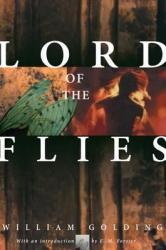
A group of boys crash on an uncharted island. The boys are left with no adult supervision, leaving them to survive on their own. They begin to create a form of order, but soon that order collapses and terror begins.
I had to read Lord of the Flies for school, but it exceeded my expectations. This book made me want to cry, stare at it and ponder what I had just read and throw it across the room all at the same time, but in the best way possible. This book will keep you on the edge of your seat and reading until the very end. There will be a character or characters that you can relate to and root for. This book is a little more on the violent side. I would definitely recommend it for an older audience. Even though classics are considered boring and bland, this one is definitely worth a try. It's an emotional roller coaster that you don't want to miss.
Reviewer Grade: 10
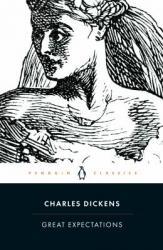
Great Expectations is a story about a young boy, Pip. It starts off with Pip in his expected life, a Blacksmith with his Stepfather Joe. When he comes of age to be apprenticed, he is sent to a mansion to work, under the employ of a strange Miss Havisham. She flips his views upside down, while breaking his confidence in himself. He sees himself and his friends, the Commoners, as dirty and common. His hopes change as well, but are broken.
The story in this is intriguing, as well as long and dense. I personally didn't like this one, but you might.
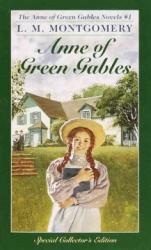
I've read this book many times, and it's always been one of my favorites. It tells the story of Anne Shirley (Anne spelt with an e, mind you) -- a spirited orphan who, by mistake, is sent to live with the old pair of siblings, Matthew and Marilla Cuthbert, on Green Gables farm in the small Canadian town of Avonlea. Anne is smart, friendly, talkative, and most of all, highly imaginative. She proves to be a handful for the Cuthberts, but overall, the friendships she develops, the scrapes she gets into, and just Anne herself are so lovely and heartwarming. I found her relatable on a profound level. While it may not be as thrilling as a fantasy, Anne of Green Gables is a classic that I would recommend to just about anyone.
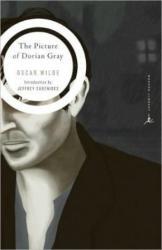
Dorian Gray is a beautiful young man untainted by sin and unworn by his years, or so he seems. The Picture of Dorian Gray follows Dorian after having his portrait done by a friend, and finding the painting, not his face, bears every mark impurity of evil and age. As a result, Dorian acts however he wants, knowing the outside world will still regard him as innocent and youthful, with no suspicions of his true character. The novel carries important themes of honesty, virtue, forgiveness, and sin. Highly recommended for lovers of period drama, mystery, and light horror. The book is also quite short which makes for a quick read.
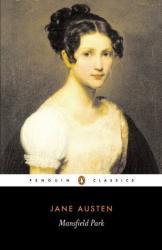
As a young girl, Fanny Price is sent to live with her cousins the Bertrams at their large estate in Mansfield Park. The book follows Fanny from her childhood living at Mansfield into her early adult life. Although they are family, Fanny has no one to rely on. She is isolated from the world and finds comfort in reading. Austen most wonderfully masters the art of empathy in this novel, as the reader feels incredibly broken whenever Fanny is hurt or emotionally worn. Mansfield Park has been called controversial for the fact that Sir Thomas, Fanny's uncle, owns a plantation with slaves. Although this is wrong, it is an uncomfortable reality of the time that is era-appropriate. Besides this, Sir Thomas is not made out to be a good person worth emulation. This book is highly recommended for lovers of Austen or Jane Eyre.
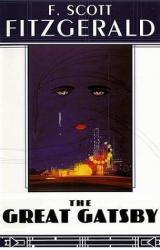
The Great Gatsby by Fitzgerald brings the audience flying back to the roaring 20s. The roaring 20s where prohibition is in effect, there is a lot of money, and people are going to speakeasies. Throughout the Great Gatsby the reader sees the insides of the richer citizens of New York lives, which involves scandalous events, lies/cheating, and glamours parties. The story is told through the perspective of Nick Carraway about his neighbor, Jay Gatsby's life. Overall, the novel is very well-written and it keep me wanting to read more and more. I really liked the novel because it allowed me to see more into the roaring 20s rather than what a history books educates you on. Once you finish this book, you will be in complete and utter shock due to the surprise ending.
Reviewer grade:11
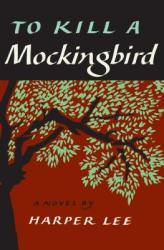
To Kill a Mockingbird is a novel entirely worthy of its praise. The humor, subtlety of the impact left by the narration from a young girl's perspective, and incredibly real themes all fit together perfectly. The story is a straightforward read and combined with the intricate storytelling based on the author's own life, the topics surrounding race and justice feel meaningful. The story follows Scout Finch, a young girl, and her friends Jem and Dill while depicting their views on life in the South during the Depression. The juxtaposition of childish natures and mature outlooks on violence, prejudice, and societal struggles brought about by the narration stand out. Each instance of injustice and depiction of the imperfections of humanity in a struggling society tie the development of the characters and rise to the climax together well. Overall, I would recommend this book to anyone, as it is a fantastic, and rather light read.
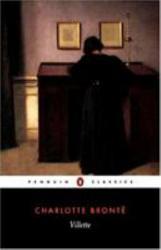
Villette is an incredibly hard read. The novel follows Lucy Snowe in her escape from England. She reminisces on her life's story and the overall storyline is intriguing. The side characters play their parts well, and certain tragedies in the story do leave hard-hitting impacts. Nevertheless, the book is over four-hundred pages of intricate literature with an incredible range of advanced vocabulary. However, the complexity of the read does add a bit of fun to the book, despite drawing attention away from the story itself. Looking up advanced English and French vocabulary almost makes the novel a neat, theatrical dictionary. While hard to understand and read, it allows the reader to dive deeper into each character and develop them more on a personal level. Overall, I would only recommend this book to people looking for a challenging read and with time on their hands.
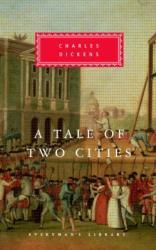
A Tale of Two Cities is a grand novel by Charles Dickens that details the events of Charles Darnay and Sydney Carton, along with many other characters, throughout the beginning the middle of the French Revolution. The book starts off a little slow, but after getting through most of the exposition, the book turns into an undoubtable classic. The main characters are detailed thoroughly, and their motivations fuel their bond and the plot beautifully. The inner conflicts they face all fit into place like pieces of a puzzle over the course of the novel, which leaves the reader both satisfied and distraught at the same time. The sub-plots also tie the story together well, and the heroic ending is written perfectly. The setting of the French Revolution, romance, and character development throughout the story creates a captivating bond with the reader and always leaves one in a state of suspense. The themes relating to the greater scale of humanity and sacrifice also leave a lasting message. Although it is a decently long read, I would recommend A Tale of Two Cities to anyone as a must read.
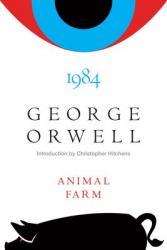
1984 by George Orwell is a phenomenal piece of dystopian literature that comments on the role of government and what freedom really is. The book follows the story of a lower ranking party member named Winston Smith who begins to defy the ideals of Ingsoc or "English Socialism" and the thought police. 1984 imagines what the world would have been like if the Axis powers in World War II had won/ if the war had never ended. I highly suggest this book be read along with Brave New World by Aldous Huxley because the juxtaposition between the two is fascinating. I recommend any reader who enjoys dystopian, philosophical, political, historical, or science fiction to read this book as it encapsulates all of those genres.
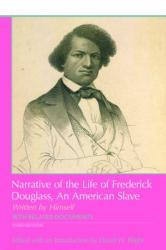
The Narrative of the Life of Frederick Douglass, an American Slave by Frederick Douglass illustrates Douglass's life during slavery in Maryland and his attempts to make it to freedom. This narrative demonstrates the horrific situations/events and the terrible way slaves were treated throughout the time period of slavery way deeper than the average history text book. The narrative is extremely informative about life's of slaves since it goes into specifics about slaves being born, their living quarters, amounts of food, the masters, etc. It is very difficult to relate to or know exactly how a slave was treated in this time period; however, this book allows readers to understand the hideous and fearful actions that were taken against these human beings. This narrative brought tears to my eyes and shocking expressions to my face when reading certain real events that took place. Overall, I really enjoyed this book and it was extremely well written because it allowed me to see more than what is taught in an American History class because Frederick Douglass goes so in-depth about his experiences in slavery throughout the narrative.
Reviewer grade: 11
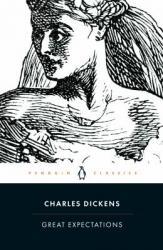
I read this book because it’s my mom’s favorite book of all time. It follows a young boy named Pip as he grows up. It’s a love story, and a pretty good one. Though it’s a little hard to read because of the old style English writing that Dickens used, it’s definitely worth reading. Overall, I would highly recommend this book!
grade: 11th
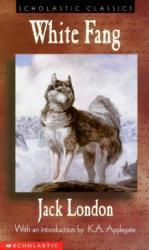
After reading “Call of the Wild” by Jack London, I wanted to read his other book about a dog, White Fang. While “Call of the Wild” will always be my favorite, the novel “White Fang” is still a really really good book! It’s about a wolf dog named White Fang. If you like books about animals, especially books written from the animals perspective, this is a really good classic. Overall I would highly recommend this book, but it does have some violence in it, so keep that in mind.


